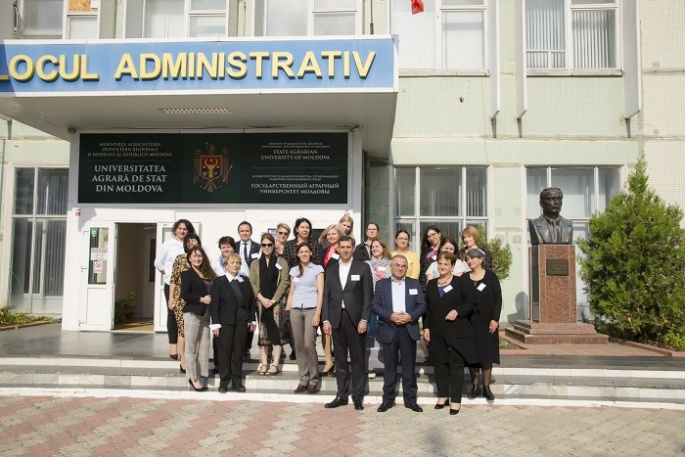The State Agrarian University of Moldova to Host Two Events Focusing on AGRIS and AGROVOC in 2020

The Food and Agricultural Organization (FAO) of the United Nations is enthusiastic to partner with the State Agrarian University of Moldova to continue to enhance the networks, sustainability and awareness of tools such as AGRIS and AGROVOC with two events in 2020 including the 2020 Annual AGRIS Community Meeting with stakeholders from Europe, Central Asia, Asia and the Pacific and the Third edition of the AGROVOC Editorial Community Workshop, “Measure to Strengthening AGROVOC and Assuring its Future Sustainability” in June, 2020.
At both events, FAO and the State Agrarian University of Moldova plan to discuss thematic topics and cross-cutting topics on management, use and further developments related to AGRIS and AGROVOC, in particular in the context of research data in agriculture, with the objective to enhance knowledge sharing and improve visibility and access to agricultural sciences and technical content of agricultural research worldwide.
Throughout both events, the importance of Open Data and latest technologies to facilitate innovation in the Food Security, Nutrition and Agriculture and accelerate progress towards the Sustainable Development Goals (SDGs) will also be discussed, in particular, the implementation and further developments of AGROVOC and AGRIS at the State Agrarian University of Moldova.
It is the objective of FAO and the State Agrarian University of Moldova through both events that the networks of AGRIS and AGROVOC multi stakeholders will be strengthened, the sustainability of AGRIS and AGROVOC, along with their networks be assured and overall awareness of importance of using semantics in agricultural data management be increased.

Photo from 2019 Workshop in Moldova
ABOUT The State Agrarian University of Moldova
2019 year marks the 85th anniversary of the founding of the State Agrarian University of Moldova, the only agricultural higher education institution in the Republic of Moldova. Throughout its academic existence, the State Agricultural University of Moldova has benefited from the contribution of several outstanding personalities in the field of agricultural education and science, educating, in turn, numerous valuable specialists who have contributed substantially to the formation and development of the national economy, of the social, political and national cultural treasure.
ABOUT AGRIS
AGRIS is the International System for Agricultural Science and Technology, a global, multilingual bibliographic database that connects users directly to a rich collection of research and worldwide technical information on food and agriculture.
One of the world's leading public information services, AGRIS offers more than 10 million bibliographic records produced by more than 450 data providers including research centers, academic institutions, publishers, governmental bodies, development programmes, international and national organizations from 150 countries. More than 400,000 agricultural and research professionals worldwide access AGRIS resources each month.
Maintained by the Food and Agriculture Organization (FAO) of the United Nations, AGRIS has been serving users from developed and developing countries through facilitating access to knowledge in agriculture, science and technology since 1974.
ABOUT AGROVOC
AGROVOC is a controlled vocabulary covering all areas of interest of the Food and Agriculture Organization (FAO) of the United Nations, including food, nutrition, agriculture, fisheries, forestry, environment etc. It is published by FAO and edited by a community of experts. It is widely used in specialized libraries as well as digital libraries and repositories to index content and for the purpose of text mining. It is also used as a specialized tagging resource for content organization by FAO and third-party stakeholders.
AGROVOC consists of +36,000 concepts and +750,000 terms in up to 35 languages. Currently, AGROVOC is an SKOS-XL concept scheme, and a Linked Open Data (LOD) set edited by VocBench. It is aligned with 18 other multilingual knowledge organization systems.

